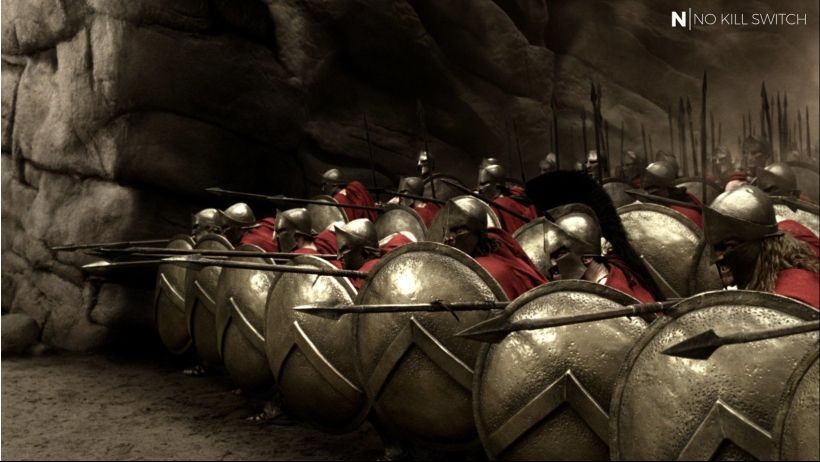This blog post is all about: why (& how) your workmates are not your families (and not even your friends - first), what's an unwritten "protocol of co-operation", why we're ruining good teams with empathy (& leave disappointed afterwards), how does mutual admiration society apply to professional scenarios.
Disclaimer: Before we get into the topic, please consider getting familiar with few of my older posts first, this will help in getting my point (& justify some bold words I'll use to back it up ;P):
- Praise for Radical Candor
- Scoundrel Leadership: an unexpected (?) praise of
- If you think Agile is not about discipline, think twice
As a consultant sometimes I was asked to assess the state of things (whether & how "Shit is Getting Done") at some projects / software development factories. It happened twice that my (unofficial) diagnosis has started with a rather informal statement:
"There are too few motherf$%kers on board of this train."
I believe you can imagine the initial confusion or recipients of such a message :) But sometimes one "meaty" one-liner brings far more clear message than hours of beating around the bush ;)
"We are (not) family"
OK, so what was my point?
Focus on great work atmosphere & positive work environment where everyone feels happy & welcome is definitely a good thing, but ... we're not here (in work) only to feel good, spend time pleasantly & enjoy ourselves. This is all good, but won't work (mid- & long-term) at all if there's insufficient level of delivery discipline & engineering professionalism. In simple words: if this setup doesn't provide sufficient value.
That's why work environment (even the most positive & friendly one) is different from "family" or "friend circle" - we're united not by unconditionally acceptance of our peers with all their defects and vices (because we love them), but by a certain "protocol for co-operation": shared standards, expectations, goals & aspirations - informal work "contract" we've committed to together.
We're here (in work) not because we like doing stuff together (well, that hopefully is true as well, but it's not the key element), but because we want to achieve something together. What is important - to achieve with similar expectations regarding:
- level of quality/aspiration
- level of commitment/effort
- level of professionalism/work ethics
Take bloody Spartans (or any other elite group in the present or past) - they were unified by common standards which have made them exquisite. But to make that happen, these standards have to be for real, self-imposed, applied to everyone & it was in group's best interest to enforce the internal discipline required to keep them intact.
If someone doesn't fulfil her/his part of the contract - (s)he becomes a burden & negatively impacts possibility of achieving the bespoken, common goals (effectively undermining others' plans/aspirations). And it's group's duty to do something about such an outlier (because it's in group's shared interest to do so):
- first: raise the topic openly & be honest about the issue
- second: talk with the individual, learn the reasoning & the whole background behind it
- third: agree on action - one that serves common purpose & mission everyone has committed to, even if there's a chance someone will not take it easily
Needless to say this may mean some unpleasant discussions/unpopular decisions: starting with negative feedback and proposed corrective actions, ending with the removal of an individual that doesn't fit the group (& its standards).
Of course group may decide to accept the situation & do nothing - but it has to be a conscious decision (which adjusts "the co-operation protocol"), that took into account interest of involved parties & their overall agreement on the direction set.
It takes some balls
In many cases what I'm suggesting above is simply too much (to expect). Groups are not mature/gelled/focused enough to act decisively & deal with the issue. Reasons may vary:
- being afraid to destroy group's integrity
- ruinous empathy (read-up on Radical Candor to learn more about it)
- reluctance when it comes to direct confrontation
- being afraid to be the only critic (if others bail out)
- mistaking family/friendship bonds with professional co-operation bonds, not being able to tell between these
And that's exactly what has ruined projects I've mentioned above:
- when someone screwed up / didn't put enough effort, teammates tried to cover for her/him (until they've stopped to care ...) but without any single word of constructive feedback or even putting things clear within the team
- if you see someone being a weak link (& no-one doing anything about that), your standards start to slip us well, it's easier to victimise yourself & justify your own negligence and deficiencies
- being critique & honest among the team members is the foundation of self-organisation, so this problem is exponentially more painful in highly independent teams that are supposed to "audit" themselves & deal with such issues internally
This in the end may lead to a peculiar situation:
People who've joined a particular group because of a great work culture within the team, are the ones who dismantle this culture (unconsciously - or rather - ignorantly) & then leave "because this is not a great place to work anymore" ... And when you ask them "how did it happen, then?" - the usual answer is a shrug.
It's about small things
I'm approaching the final paragraphs, so what was about this "motherf$%ker" word then?
Whether you like it or not, everyone (especially any kind of leaders) has to have a bit of ruthless toughness regarding her/himself (first) & other team members as well. Not in a toxic, abusive way, but in a professionally unforgiving, relentless way. You either set a bar to a given level & treat is seriously or you should not waste time on this foolery at all.
- each, even tiny skew from the norm should be raised (& addressed) - otherwise you'll get a new, crippled norm instead ...
- we criticise behaviours & attitudes (not people), but we're not afraid to put them in context of individuals when needed
- we do not let empathy ruin openness & undermine straightforward dealing with issues & concerns
- we treat seriously not only our privileges & benefits, but also obligations & commitments - same rules & norms should apply to everyone
- when making a decision, performing any action within team - we shouldn't be driven by who will like us more or less (as an effect of decision/action) - professional work is NOT a popularity contest
Ultimately, no professional team should be a "mutual admiration society". Work environment is not a high school. People have certain expectations regarding their career & its growth, they have their aspirations, future plans, approach to work ethics and the individually set level of effort (commitment) they can sacrifice. These are NOT the things you should fool yourselves (or others) about!
Look for teams (/individuals) you're fully compatible with, regarding these matters. And then be strict & demanding when it comes to respecting them.
Pic: Copyright - Warner Bros Pictures (All Rights Reserved)





